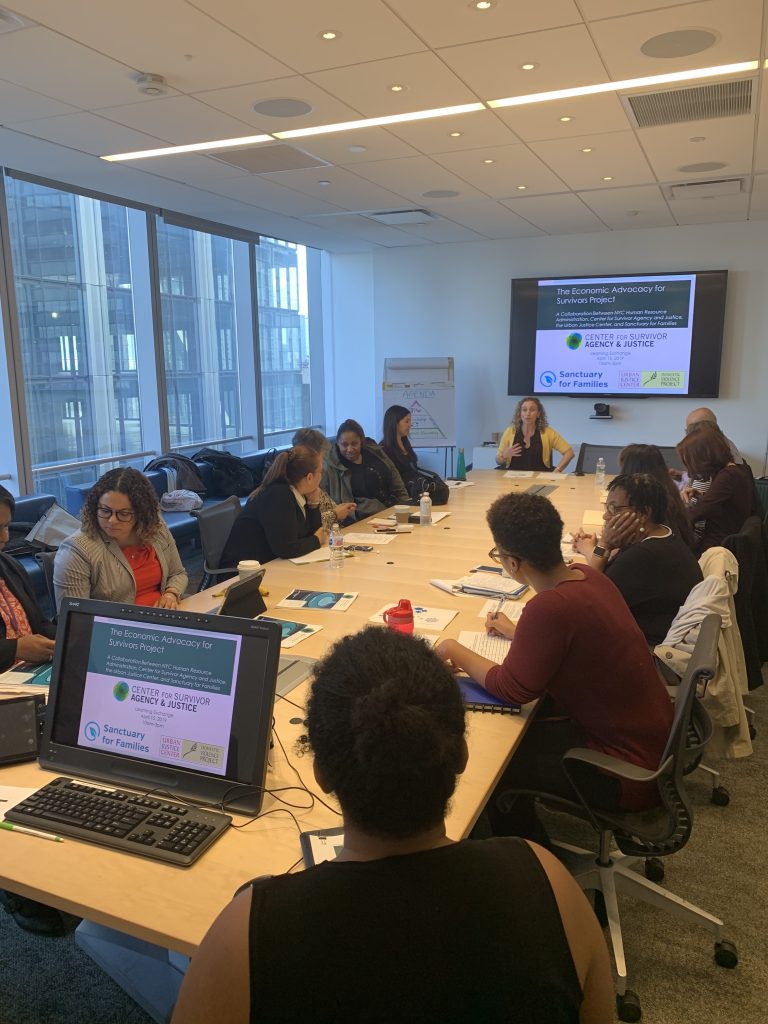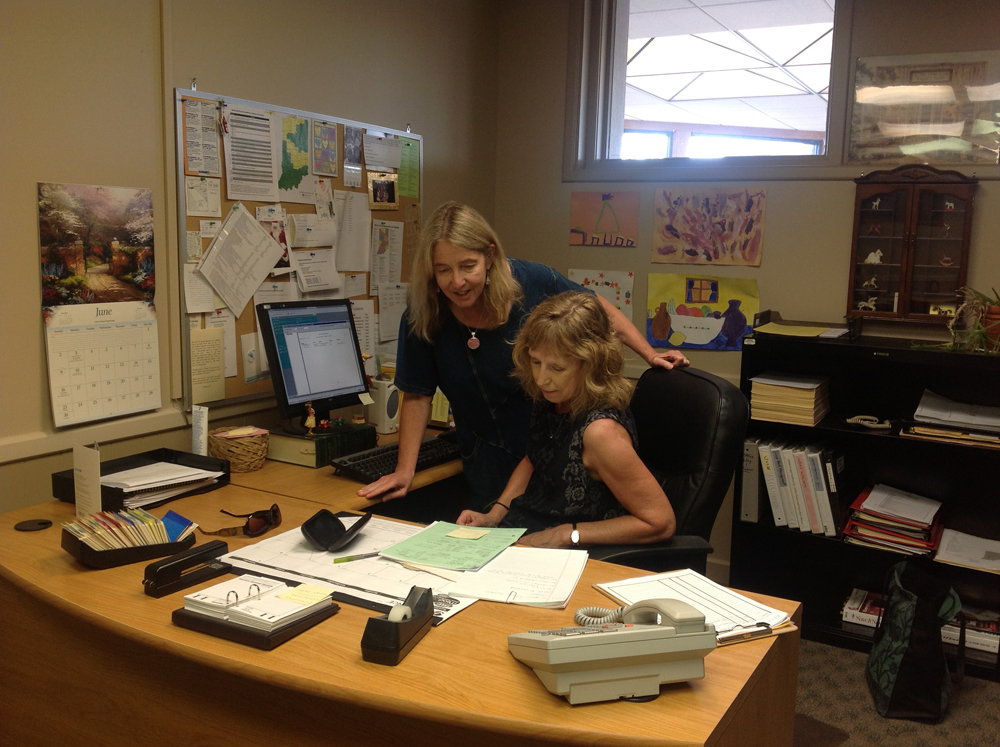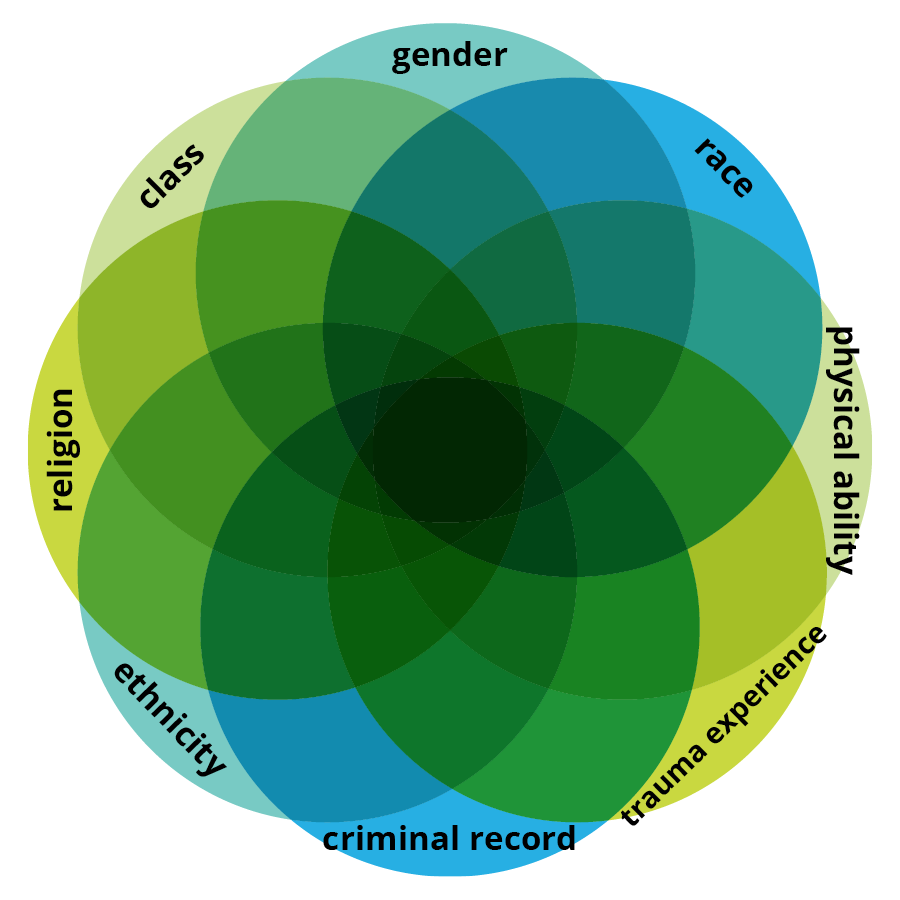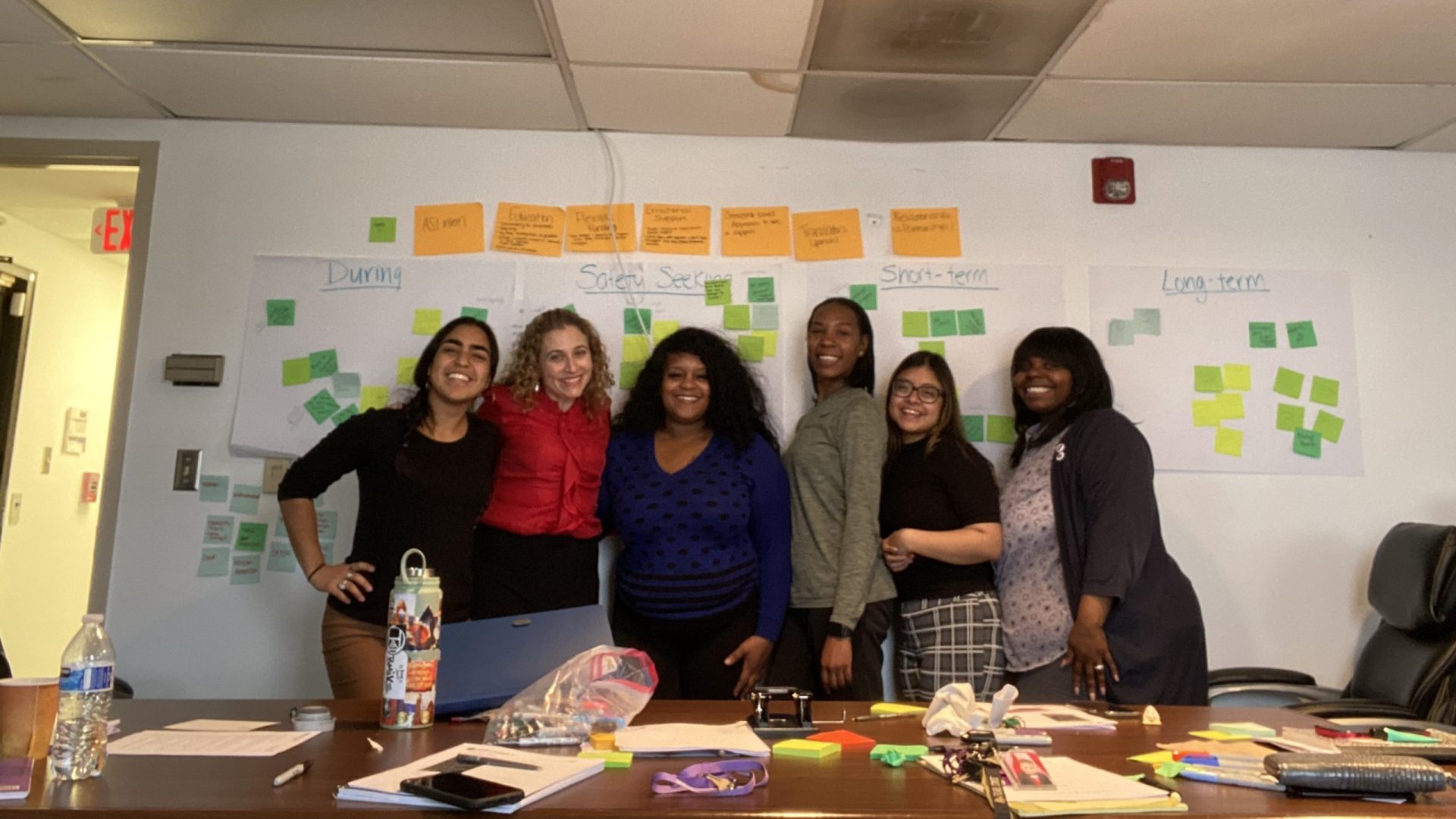
Our Approach
Access to consumer rights and economic security for survivors cannot be done through any one person. To be effective, attorneys and advocates need to collaborate with each other, support from their organizations, to build partnerships with consumer advocates and other movement makers, and to develop innovative and sustainable approaches.
CSAJ works with on-the-ground programs as pilot and demonstration sites to offer the training, network building, and other strategic support required to rethink and reshape the ways we do the work. We carry out this in partnership with the site through four key phases:
- Assessment &Learning Exchange: Mapping the economic landscape through self, organizational, and/or community needs assessment to identify gaps, opportunities, and priorities.
- Strategic Planning: Convening staff, partners, and stakeholders to develop common goals and create action plans for change. Goals and strategies that attend to individual, community, and systems advocacy needs.
- Training, Assistance & Practice: CSAJ and partners offer training, coaching, consultation, expert advice, and other assistance to build capacity to meet self-defined goals.
- Innovation Exchange & Reflection: Create space to measure, reflect, celebrate and build upon success of the work. We also document and share what works, nationwide.
Past pilot and demonstration projects:
**see below for core resources and promising practices developed from these sites. Or contact us for more information.
-
STOP Intensive Technical Assistance Project (SITAP)
-
District Alliance for Safe Housing (DASH)
-
New York City Economic Legal Advocacy for Survivors Project
-
Midshore Council on Family Violence
-
Texas Council on Family Violence
-
Women’s Resource Center, Scranton, PA
-
Indiana Legal Services, Low Income Taxpayer Clinic, Bloomington, IN
-
University of Denver, Student Civil Litigation Clinic
Core Resources
From conducting needs assessments to building partnerships and creating organizational and systems change, these resource kits can get you started in identify, prioritizing, and addressing the the “economic ripple effect of violence” facing survivors you serve.
Needs Assessment Tools
- Achieving Economic Justice for Domestic Violence Survivors: A National Needs Assessment
- Economic Ripple Effect Activity
- Issue Mapping Worksheet
- Client Case Review
Organization & Systems Change Tools
Systems Thinking & Policy Analysis Worksheet: A tool to assess the impact (intended or not) of a system or policy so you can plan your advocacy
How to “do the work:” Survivor Centered Economic Advocacy in Organizational Context: A panel webinar that explores what makes an effective survivor centered organization, including strategies and real-life examples for organizational change
Equity Tools & Resources
Mapping Equity in Domestic Violence Advocacy at the State-Level: Findings and practical strategies based on 3-part study: Equity data mapping, Content analysis, & Interviews with five statewide DV coalitions
Showing UP Report: Shares tips and strategies from advocates of color for the field about how to talk about, assess and build programming, and build other equitable practices
Partnership Building Tools & Resources
Building Partnerships for Economic Justice: A Report on CSAJ’s Innovative Pilot Projects: A report detailing the activities and lessons learned from four on-the-ground implementation sites.
Building Partnerships to Enhance Consumer Rights for Survivors: An Assessment & Resource Tool: A tool for attorneys and advocates interested in enhancing consumer rights for domestic violence survivors to self-reflect and assess their own organizational and individual capacity to enhance consumer rights for survivors
Partnership Mapping Worksheet: A tool to identify partners, examine the strength of the relationship, and create plans to build or strengthen partnership

Become a Demonstration Site
Want support and partnership to rework your program’s approach to economic advocacy for survivors? Have an innovative model or approach you want to share with others? Are doing amazing individual advocacy but want help leveraging it for community or systems change?
Whether you’re just starting to think about economics, want to strengthen your work, or are *the* expert and want to share what you know – we want to work with you! Contact us to learn more and inquire about becoming a demonstration site.














